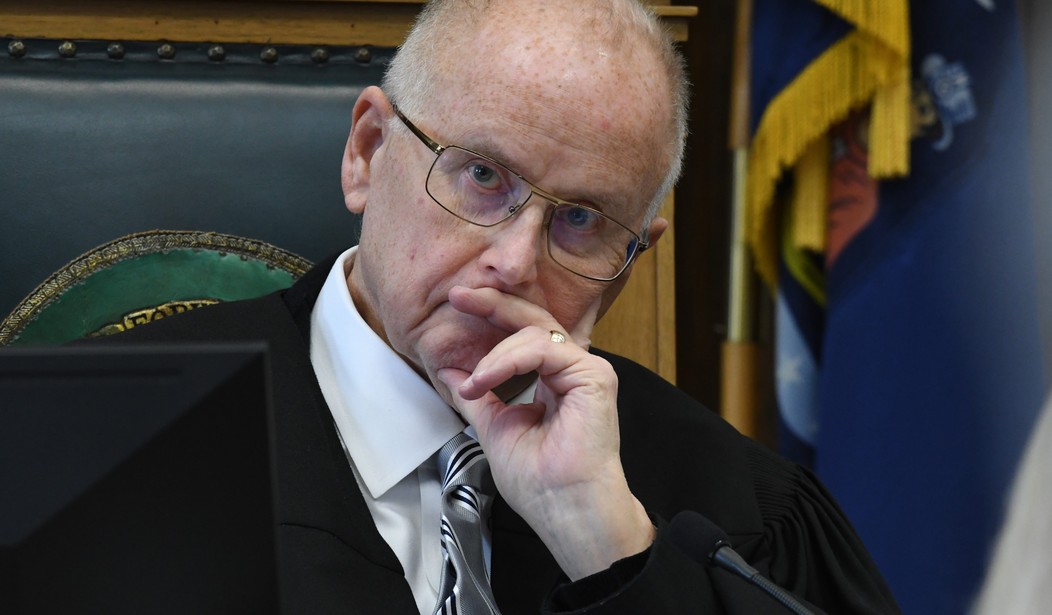I watched a lot of the arguments between the prosecutors and the defense today over whether or not jurors should be able to convict Rittenhouse on lesser offenses if they acquit him of the top charges originally sought by prosecutors. It looked to me like an admission by the prosecution that the trial hasn’t gone very well and now they are hoping to salvage something. Indeed, two legal experts consulted by the Associated Press said that’s exactly what it was.
The fact that prosecutors are seeking a lesser offense is a “tacit acknowledgement” that they aren’t confident the jury will convict Rittenhouse on the original charges.
“I think they are trying to salvage something at his point in time,” [defense attorney Julius] Kim said.
Michael O’Hear, a criminal law professor at Marquette University in Milwaukee, agreed, saying lesser included charges are usually sought by the defense.
“Normally the prosecutor would not request a lesser included instruction if the prosecution had a very high degree of confidence in the likelihood of conviction of the greater offense,” O’Hear said, noting that adding it “practically invites the jury to compromise on the lesser offense.”
The arguments over which specific lesser charges would be included dragged on for quite a while this morning and the defense objected to some charges but not to others:
Rittenhouse, now 18, faces one count of first-degree reckless homicide in the killing of Rosenbaum, who was the first person he shot after Rosenbaum chased him into a used car lot. Prosecutors sought to add a second-degree reckless homicide charge, but the defense objected. Schroeder said he was unlikely to allow the lesser charge because he thought a guilty verdict on the lesser charge would be overturned on appeal.
Rittenhouse also faces two charges of first-degree reckless endangerment: one for firing at an unknown man who tried to kick him in the face and another because a reporter was in the line of fire when Rittenhouse shot Rosenbaum.
The argument over the lesser charges in the case of “jump-kick man” was whether Rittenhouse could be guilty of reckless endangerment because he fired two shots and both missed their target. The defense argued that was a silly standard. As for the reporter who was behind Rosenbaum, the argument from the prosecutors was that Rittenhouse could have stopped firing sooner and that one of his shots only grazed Rosenbaum’s head, therefore it could be considered reckless endangerment of anyone standing behind Rosenbaum. I thought the evidence was that the shot to Rosenbaum’s head was as he was almost on the ground in which case a graze would likely have gone into the pavement, but maybe I’m wrong about that. In any case, Judge Schroeder said he was inclined to allow that lesser charge but not the one in the case of “jump-kick man.”
The defense did not object to the lesser charges in the shooting of Anthony Huber but did object to reckless endangerment counts in the shooting of Gaige Grosskreutz.
Another major argument was over the inclusion of an instruction to the jury about provocation. The prosecution made clear they will be arguing that Rittenhouse raised his gun toward someone and that’s when Joseph Rosenbaum began chasing him. They once again disputed the idea that Rosenbaum had made previous threats or that those mattered even if true. The judge ultimately said he would include the provocation instruction despite the objections of the defense.
The judge said he was issue his proposed instructions to the jury on Saturday. Final arguments in the case will take place Monday, with both the prosecution and the defense given up to 2 1/2 hours to make their case before the jury. Here’s video showing all of the arguments over jury instructions.








Join the conversation as a VIP Member